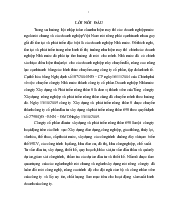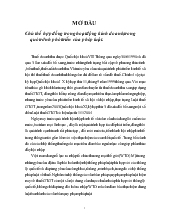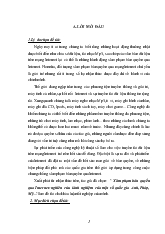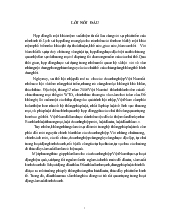Luận án Độ mở kinh tế, phát triển tài chính, tăng trưởng kinh tế và chất lượng môi trường: Bằng chứng từ các nước đang phát triển
- Người chia sẻ :
- Số trang : 281 trang
- Lượt xem : 14
- Lượt tải : 500
Các file đính kèm theo tài liệu này
 luan_an_do_mo_kinh_te_phat_trien_tai_chinh_tang_truong_kinh.pdf
luan_an_do_mo_kinh_te_phat_trien_tai_chinh_tang_truong_kinh.pdf CV gửi Cục CNTT-BGDĐT-05-10.pdf
CV gửi Cục CNTT-BGDĐT-05-10.pdf ENGLISH ABSTRACT.pdf
ENGLISH ABSTRACT.pdf TRANG THÔNG TIN NHỮNG ĐÓNG GÓP MỚI CỦA LUẬN ÁN (EN).pdf
TRANG THÔNG TIN NHỮNG ĐÓNG GÓP MỚI CỦA LUẬN ÁN (EN).pdf TRANG THÔNG TIN NHỮNG ĐÓNG GÓP MỚI CỦA LUẬN ÁN (VN).pdf
TRANG THÔNG TIN NHỮNG ĐÓNG GÓP MỚI CỦA LUẬN ÁN (VN).pdf VIETNAMESE ABSTRACT.pdf
VIETNAMESE ABSTRACT.pdf
- Tất cả luận văn được sưu tầm từ nhiều nguồn, chúng tôi không chịu trách nhiệm bản quyền nếu bạn sử dụng vào mục đích thương mại
Bạn đang xem trước 20 trang tài liệu Luận án Độ mở kinh tế, phát triển tài chính, tăng trưởng kinh tế và chất lượng môi trường: Bằng chứng từ các nước đang phát triển, để xem tài liệu hoàn chỉnh bạn click vào nút DOWNLOAD LUẬN VĂN ở trên
Motivated by trade and financial liberalisation policies have become increasingly important in developing countries over the past two decades and the existing gaps in the literature regarding financial development, economic growth, and environmental quality research need to be addressed. Therefore, this thesis aims to provide new evidence on the impacts of trade and financial openness on financial development, the impact of financial development on economic growth, and the impact of trade openness on environmental quality in 64 developing countries over the period 2003-2017. One major contribution of this thesis for three objectives is the adoption of the regression model based on Bayesian model averaging approach to consider model uncertainty (Raftery et al., 1997; Hoeting et, al., 1999; Chipman et al., 2001; Fragoso et al., 2018). Regarding the impacts of openness on financial development, the thesis demonstrates that the contribution of trade openness to financial development is important in developing economies with better institutions. However, financial openness has an insignificant positive effect on financial development. There is no evidence to support the Rajan and Zingales hypothesis that the simultaneous openness to both trade and capital flows promotes financial development. The findings also indicate that a better institutions environment allows a developing economy to exploit the benefits of openness to financial development. Regarding the impact of financial development on economic growth, the main findings indicate that financial development has a significant U-shaped effect on economic growth, providing new insight concerning the relationship between financial development and economic growth in developing countries. The results also demonstrate that investment to gross domestic product ratio and foreign direct investment have significant positive effects on economic growth, whereas population growth has a significant negative impact on economic growth. With regard to the impact of trade openness on environmental quality, the empirical results reveal that trade openness in developing countries does not cause environmental degradation. Besides trade openness, the findings provide strong evidence in favour of financial openness and renewable energy consumption as two of the most important determinants of environmental quality by reducing carbon dioxide emissions. Meanwhile, inward FDI stock to domestic capital stock and income have harmful effects on environmental quality in the context of developing countries.




